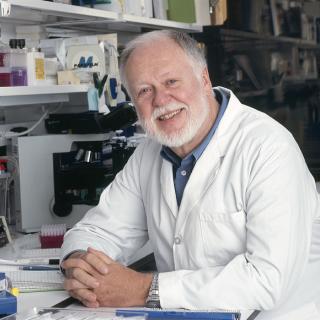Laboratory of Human Carcinogenesis
Laboratory of Human Carcinogenesis
About
The Laboratory of Human Carcinogenesis has a multifaceted research program integrating basic, translational, clinical, and population research, with a major focus on common and lethal human cancers that include tumors of the breast, colon, esophagus, liver, lung, pancreas and prostate. Our studies utilize a Precision Medicine Strategy. Our main objectives are to conduct investigations that assess: (1) Mechanisms of carcinogenesis including the cellular functions of cancer driving genes; (2) experimental approaches in biological systems for the extrapolation of carcinogenesis data and mechanisms from in vitro models and experimental animals to humans; (3) molecular integrative epidemiology of human cancer risk; and (4) cancer biomarkers of diagnosis, prognosis, and therapeutic outcome.
The laboratory currently consists of three sections: the Liver Carcinogenesis Section (LCS), the Molecular Genetics and Carcinogenesis Section (MGCS), and the Molecular Epidemiology Section (MES). Scientifically, the emphasis is on the role of inherited or modifiable risk factors as important determinants of an individual's cancer susceptibility and outcomes. Our investigations of host factors include interspecies studies among laboratory animals and humans, and are multidisciplinary to include molecular and cellular biology, pathology, epidemiology and clinical investigation. The MGCS headed by Dr. Curtis Harris devotes their major efforts to precision medicine studies of lung and colon cancer, including fundamental and mechanistic studies. The LCS headed by Dr. Xin Wei Wang focuses mainly on investigating tumor heterogeneity and early detection and prevention of liver cancer to improve outcome across diverse populations and identifying cancer drivers through functional genomics. The MES headed by Dr. Stefan Ambs mainly conducts integrative molecular epidemiology studies of prostate cancer and breast cancer with a special emphasis on health disparity and utilizes epidemiological and translational research strategies to identify risk factors and pathways that influence tumor development and progression.
The overall goal of LHC is to acquire knowledge that will improve cancer prevention, early detection, stratification and effective treatment.
Job Vacancies
We have no open positions in our group at this time, please check back later.
To see all available positions at CCR, take a look at our Careers page. You can also subscribe to receive CCR's latest job and training opportunities in your inbox.
News
Learn more about CCR research advances, new discoveries and more
on our news section.
Resources
The Laboratory of Human Carcinogenesis (LHC) uses a transdisciplinary research approach to investigate the molecular epidemiology of human cancer. We perform epidemiological studies of lung (Harris), prostate (Ambs), and liver cancer (Wang). These studies are complemented by molecular pathogenesis and translational research studies that target seven different cancer sites:
These malignancies are leading causes of cancer-related morbidity and mortality world-wide. To date, no prevention, screening or therapeutic regimen has been proven to be effective against liver or pancreatic cancer. Moreover, not all segments of the U.S. population have equally benefited from the advances in our knowledge and treatment of cancer. Minority, immigrant, and disadvantaged populations continue to experience an excessive cancer burden due to barriers in access to health care, cultural barriers, exposure to carcinogens and pathogens, and also ancestry-related risk factors. Using our transdisciplinary research approach, the LHC is investigating the causes of cancer health disparities. One focus is the disproportionally high cancer mortality in the African American community.
Prostate Cancer
- Prostate Cancer Study Protocol
- Prostate Study Cases Questionnaire
- Prostate Study Controls Questionnaire
Breast Cancer
Lung Cancer
Liver Cancer
Contact
Contact Info
Center for Cancer Research National Cancer Institute
- Building 37, Room 3068A
- Bethesda, MD 20892-4258
- 240-760-6420








